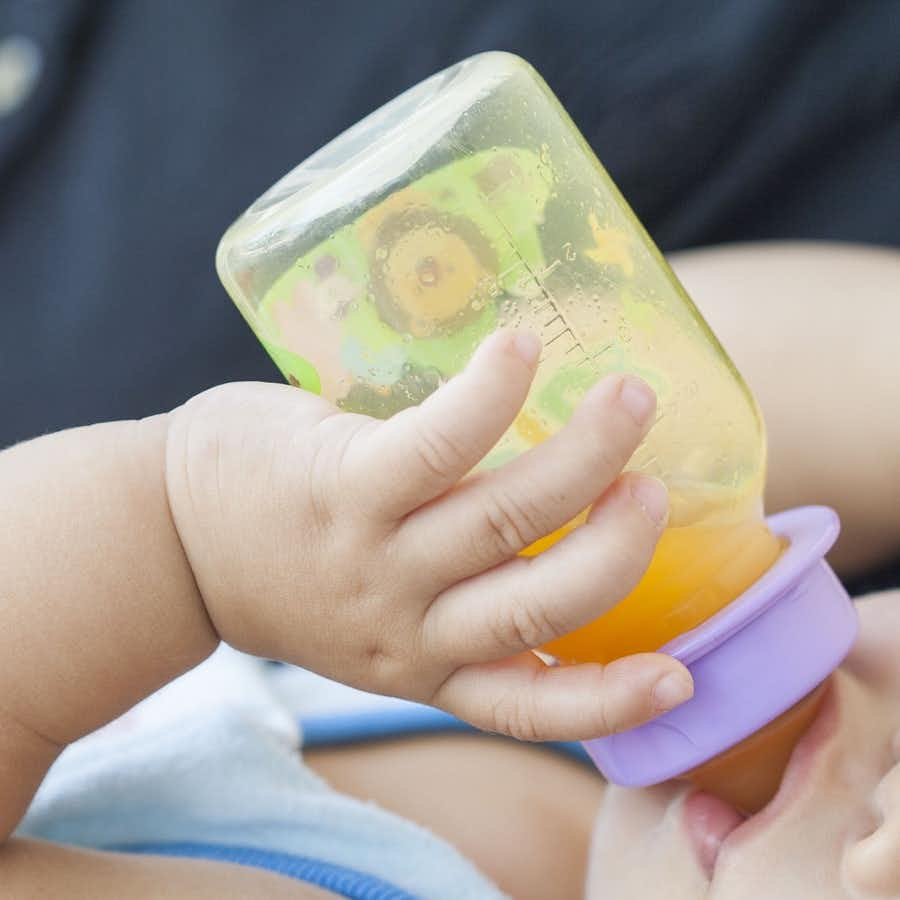
Lots of parents think of fruit juice as a healthy beverage for babies and children. It certainly is better than carbonated soft drinks, which are usually loaded with high fructose corn syrup and often contain artificial coloring and flavoring. But fruit juice is also high in sugar. This may not be healthy for infants, even when the sugar comes naturally from the fruit.
American Academy of Pediatrics Changes Its Advice:
Pediatricians used to suggest fruit juice even for babies over six months old, thinking that would be a way for them to get vitamins naturally. Now they say don’t fill sippy cups with juice drinks for little ones less than a year old.
The problem is that fruit drinks can cause weight gain, diarrhea or cavities. Sugars present in fruit juice, sucrose, glucose, fructose and sorbitol, are responsible for these consequences. Nobody wants babies to suffer abdominal cramps, bloating or diarrhea because they are drinking too much juice. (In rare instances, a pediatrician might recommend giving a young child fruit juice to combat constipation.)
The AAP warns parents against giving babies unpasteurized juice because it may contain harmful bacteria. They also alert parents to read labels. Many fruit drinks may have very little actual juice in them; sometimes they are mostly water, sugar and coloring. These are not nutritionally equivalent to real fruit juice.
What Can Babies Drink?
If babies are already used to drinking juice, the doctors suggest gradually cutting it with water. They suggest that toddlers over a year old should be given their juice in a cup, not a bottle, and not allowed to carry it with them for large parts of the day. Constant re-exposure to fruit juice sugars can promote tooth decay.
Instead of juice, the doctors recommend giving babies mashed or pureed fruit once they start eating solid foods. Ideally, that would not be until they are at least six months old.
What About Older Kids?
Even school-age children and adolescents should not be encouraged to drink more than 8 ounces of fruit juice daily. They should also be eating whole fruit, not just drinking juice. Research is not clear on whether kids who drink more juice are heavier.

